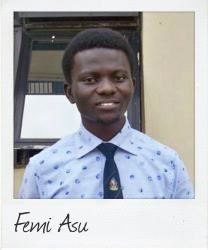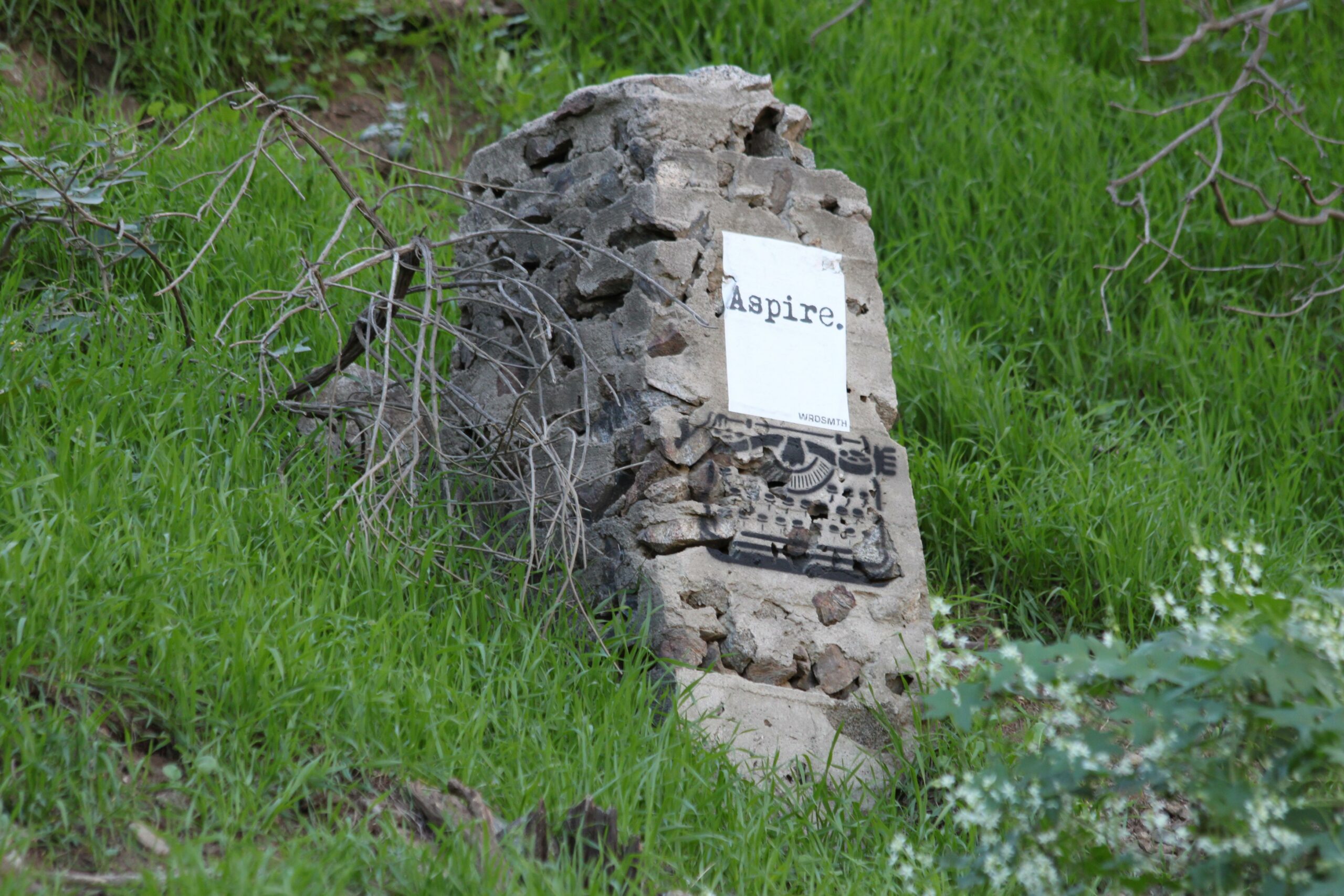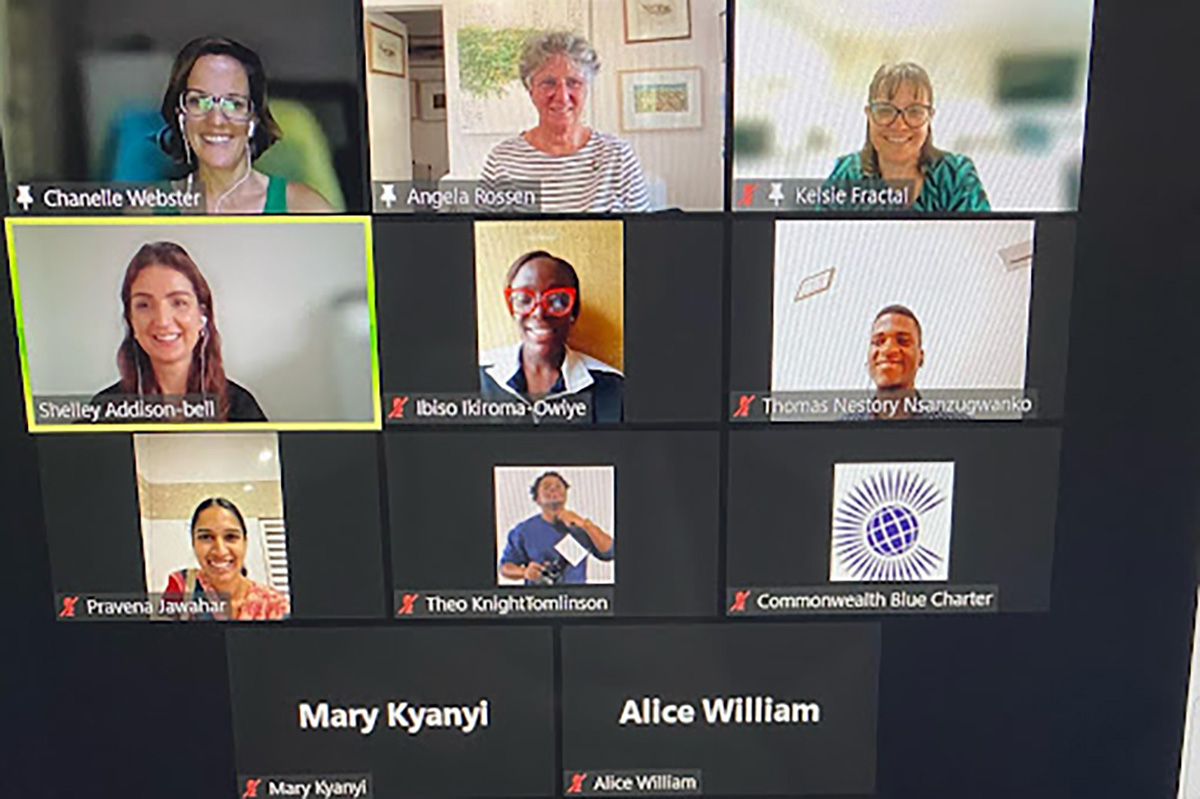“Young people have role in achieving SDGs”
November 18th, 2015 Young people play an integral role in advancing development, democracy and peace. At the 10th Commonwealth Youth Forum in Malta, 21-25 November, over 400 youth leaders will discuss the challenges and opportunities facing young people, and devise relevant policy solutions through four main agendas – economic, environmental, social and political. The theme of the Forum is ‘Adding Global Value… #Whatnext?’. Femi Asu, 30, a Commonwealth Correspondent from Lagos in Nigeria, says personal goals are part of the solution.
Young people play an integral role in advancing development, democracy and peace. At the 10th Commonwealth Youth Forum in Malta, 21-25 November, over 400 youth leaders will discuss the challenges and opportunities facing young people, and devise relevant policy solutions through four main agendas – economic, environmental, social and political. The theme of the Forum is ‘Adding Global Value… #Whatnext?’. Femi Asu, 30, a Commonwealth Correspondent from Lagos in Nigeria, says personal goals are part of the solution.
In his message at this year’s International Youth Day, United Nations Secretary-General Ban Ki-moon described young people as change-agents with tremendous potential to drive economic and social progress.
“As the world changes with unprecedented speed, young people are proving to be invaluable partners who can advance meaningful solutions. Youth movements and student groups are challenging traditional power structures and advocating a new social contract between States and societies. Young leaders have contributed fresh ideas, taken proactive measures, and mobilized through social media as never before,” he said.
In the past few years, the world has not only seen an increase in the population of young people, it has also continued to experience their growing influence.
At the beginning of 2012, the world population surpassed 7 billion, with people under the age of 30 accounting for just over half of this number, according to the United Nations Educational, Scientific and Cultural Organization.
Last year, the UN reported a rise in the global population of young people between the ages of 10 and 24 to a historic high of 1.8 billion, almost a quarter of the world’s 7.3 billion people.
According to the report entitled ‘The Power of 1.8 Billion’ by the UN Population Fund, about 90 percent of these young people live in least developed countries.
To be sure, young people have a huge role to play in the world’s new vision for sustainable development, which the UN has spelt out in the recently adopted Sustainable Development Goals (SDGs).
In late September, world leaders met at the UN General Assembly in New York and endorsed the SDGs to replace the eight Millennium Development Goals.
The ambitious 17-point agenda was designed to jump-start economies and transform the world as it aims to end poverty, promote prosperity and protect the environment over the next 15 years.
Having examined the goals, I think they qualify to be called BHAGs – Big Hairy Audacious Goals — a term coined by Jim Collins and Joe Perras in their book ‘Built To Last’.
These are the goals: No poverty; zero hunger; good health and well being; quality education; gender equality; clean water and sanitation; affordable and clean energy; decent work and economic growth; industry, innovation and infrastructure; reduced inequalities; sustainable cities and communities; responsible consumption and production; climate action; life below water; life on land; peace, justice and strong institutions, and partnerships for the goals.
Youth-led organisations and youth leaders should fully sensitize more youths about the global agenda and encourage them to take ownership of it and contribute actively towards its success.
As the SDGs are meant to guide development priorities around the globe, I believe young people should have clear-cut written goals to guide their personal development.
I call them Self-Development Goals, and they are as essential to personal success as to the betterment of the society.
Young people should constantly seek to improve their knowledge base and skills set through continuous learning.
“Efficient utilisation of this existing knowledge base,” said India’s former President Dr. APJ Abdul Kalam, in his book Ignited Minds, “can create wealth for us in the form of better health, education and other indicators of progress.”
Young people can help in tackling poverty, illiteracy, unemployment and climate change, among other societal challenges, by creating more small and medium-sized enterprises and non-profit organisations.
Linus Okorie, whose organisation Guardians of the Nation International is helping to groom young leaders in Nigeria, stressed the need for young people to identify their areas of strengths and create new ideas.
Examples abound of young people whose initiatives are worthy of emulation.
Ugandan-born Ashish Thakkar, whose entrepreneurial journey began at age 15, has built up Mara Group, a conglomerate spanning across Africa and a number of industries. His Mara Foundation is helping to boost entrepreneurship and education across the continent.
In Nigeria, Jumoke Awe’s Feminine Care Development Foundation is helping to get indigent and vulnerable children enrolled in schools through its Street2School project, and Doyinsola Ogunye’s Kids Clean Club is promoting tree planting in Lagos to curb climate change.
Young Indonesian Nadiem Makarim turned a transportation challenge in Jakarta into a thriving business that uses technology to connect people, goods, and services through GO-JEK, Indonesia’s version of Uber taxis.
Young people must also be active in holding government to account, and put their leaders on their toes in pursuing the global goals.
Calling on youth to join forces with the UN, Ki-moon said, “More than 3 billion people — nearly half of the world’s population — are under the age of 25, and almost 90 per cent of young people live in developing countries. I believe that this population is the future for promoting sustainable development, particularly economic development.”
This can only happen when more young people decide not to sit on their hands, complaining about the challenges in their societies, and contribute their quota towards the achievement of the SDGs in their countries.
I believe a message that Christine Lagarde, Managing Director of the International Monetary Fund, gave to students at the Universitas Indonesia, Jakarta, applies to every young person:
“You could harness the power of technology to share your ideas and your skills with a much bigger universe! As global citizens, you will also have a role in how the global community confronts common challenges.
“Think of the sustainable development agenda…and the possibility of improved lives for billions of people around the world. Think of climate change and the opportunities that ‘green growth’ offers to your generation and those to come. Your voice, your actions today matter. Your generation can be the ‘change agents’…for a better world.”
This is a clarion call to young people to operate in a mission mode, with the new vision to make their countries and the world safer, more prosperous, and more peaceful.
http://mrg.bz/WNG8Y0
…………………………………………………………………………………………………………………………
About me:
…………………………………………………………………………………………………………………………
Opinions expressed in this article are those of the author and do not necessarily represent the views of the Commonwealth Youth Programme. Articles are published in a spirit of dialogue, respect and understanding. If you disagree, why not submit a response?
To learn more about becoming a Commonwealth Correspondent please visit: http://www.yourcommonwealth.org/submit-articles/commonwealthcorrespondents/
…………………………………………………………………………………………………………………………




